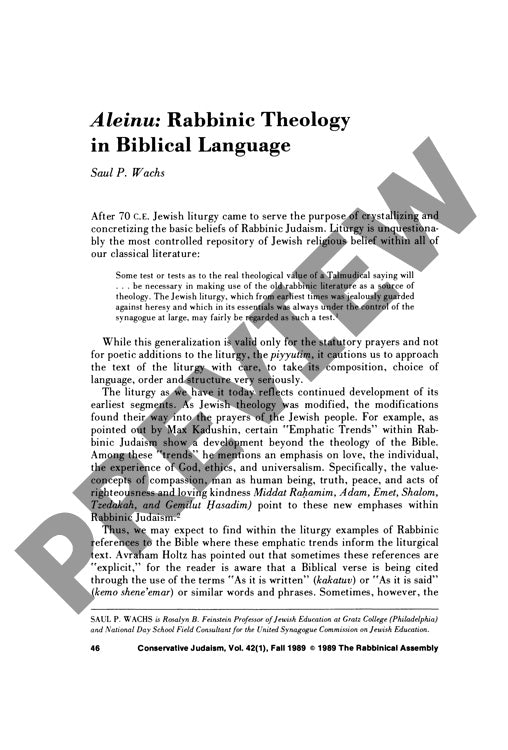Aleinu Rabbinic Theology in Bibilical La
Couldn't load pickup availability
When ancient Jewish sages incorporated biblical verses into the Aleinu prayer, they dramatically transformed their original martial meanings into a revolutionary vision of universal redemption. Through intertextual analysis of Deuteronomy 4:39, Exodus 15:18, and Zechariah 14:9, this research reveals how passages once focused on divine warfare and the destruction of Israel's enemies were recontextualized to reflect evolving rabbinic theological principles. The methodology examines the relationship between these biblical texts and their liturgical application, demonstrating how the Aleinu prayer shifts emphasis from divine retribution against idolators to universal salvation through repentance (teshuvah). This transformation embodies what Kadushin identifies as "emphatic trends" in rabbinic Judaism, including divine compassion (Middat Rahamim), universalism, and concern for humanity as a whole (Adam). The Aleinu thus emerges as a sophisticated example of how rabbinic theology employed biblical language to advance ethical monotheism, where all peoples can achieve redemption through recognition of divine truth rather than through destruction of the wicked. This liturgical innovation reflects the broader rabbinic belief in the possibility of universal repentance, extending beyond traditional biblical particularism to embrace a more inclusive theological worldview.

More Information
-
Physical Description
-
Publication Information
Published 1989
ISBN
-
Publication Credits
Saul Wachs

